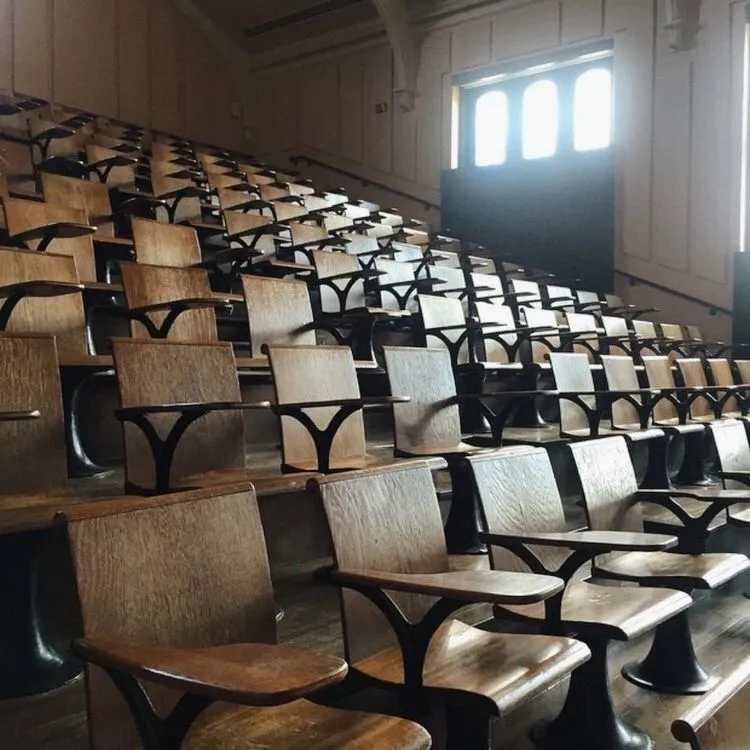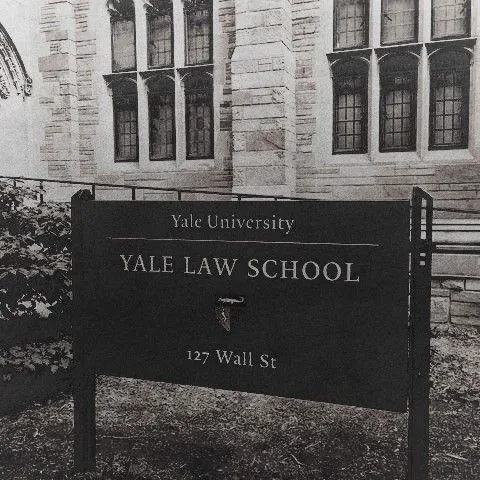Best Law Schools in the US 2025: A Detailed Guide for Future Legal Scholars
May 23, 2025

Choosing the right law school in the United States is more than a step toward a legal career; it is a defining chapter in a student’s academic and professional life. In the same way that students passionately seek out top medical schools to lay the groundwork for a future in healthcare, aspiring attorneys are drawn to elite law schools that offer a blend of academic rigor, mentorship, and powerful alumni networks. The prestige associated with a top-ranked law school can open doors that few other degrees can, especially when paired with a well-rounded legal education.
The year 2025 brings a renewed focus on the evolving demands of legal education. Today’s best law schools are not only centers of academic excellence but also hubs of innovation, preparing students to navigate a complex legal landscape shaped by technology, social change, and global challenges. From environmental law to intellectual property rights and social justice, the top programs respond to current events and anticipate the future of law. As a result, future law students must look beyond the name and delve into what truly differentiates each institution.
Families and students alike often find themselves overwhelmed by the sheer volume of information available online. Between rankings, reviews, forums, and advice columns, knowing which schools offer the best value, mentorship, and post-graduate opportunities can feel daunting. This guide to the best law schools in the US in 2025 is designed to cut through the noise. It focuses on the programs that consistently rise to the top based on academic quality, employment outcomes, and student satisfaction.
By understanding what makes a law school truly exceptional, students can align their academic goals with their professional aspirations. Whether you are aiming to specialize in constitutional law, corporate litigation, or public interest advocacy, the right environment makes all the difference. The law school you choose should be a place where your passion for justice is challenged, refined, and ultimately transformed into a lifelong mission.
Quick Navigation
Understanding Law School Rankings

What Makes a Law School Stand Out?
In the competitive landscape of legal education, certain institutions consistently distinguish themselves through a powerful blend of academic prestige, inspiring faculty, and real-world outcomes. These aren’t just places where legal theory is studied. They are environments where future changemakers are molded. For the passionate student dreaming of justice, equality, or making a global impact through law, finding the right school is a decision filled with weight and emotion.
Key Ranking Factors
Law school rankings help illuminate key indicators of institutional quality and potential return on investment. Among the most critical elements:
- Academic Reputation: Judged by professors, deans, and practicing attorneys, reflecting the strength and influence of a school’s curriculum and scholars.
- Bar Passage Rates: Indicates how well a law school prepares students for legal licensure and immediate practice.
- Employment Outcomes: Reflects the success of graduates in securing full-time, long-term legal roles, often in top-tier firms or public service.
- Faculty Credentials: Quality and impact of professors through scholarship, practice, and student mentorship.
- Student-Faculty Ratio: Smaller class sizes mean more personalized attention and deeper intellectual engagement.
Each factor contributes to shaping a school’s identity and the strength of the legal education it offers.
The Importance of Rankings
For many families and students, rankings serve as a trusted benchmark in a sea of options. Attending a top-ranked law school can dramatically increase access to competitive internships, clerkships, and job placements. But prestige is not everything. Each student must weigh how those numbers reflect their own aspirations, values, and learning style.
Limitations and Considerations Beyond Rankings
While a number on a list can be reassuring, it should never be the sole factor. Culture matters. Community support, diversity, geographic location, and personal connection to a school’s mission should also inform the decision. Many successful legal careers begin at schools that may not top the charts but offer the perfect fit for a student’s ambition and character.
Note: This guide is based on the most current and relevant data, carefully structured to support future law students and their families in identifying what truly matters when choosing a law school.
Top Law Schools in the US (2025)

In 2025, the landscape of legal education in the United States is marked by institutions that not only uphold academic excellence but also adapt to the evolving demands of the legal profession. These top law schools are recognized for their rigorous curricula, distinguished faculty, and robust alumni networks that collectively prepare students for impactful careers in law.
Yale Law School: Where Legal Minds Become Legal Legends
When it comes to legal education in the United States, few names carry the prestige and emotional weight of Yale Law School. Nestled in the historic town of New Haven, Connecticut, Yale represents more than just academic excellence. It stands as a sanctuary for aspiring lawyers who dream not only of understanding the law but of changing the world through it.
A Learning Culture Unlike Any Other
Yale Law School is known for doing things differently. It’s not simply about rankings, although it consistently tops the list of the best law schools in the country. What truly sets Yale apart is its unique academic environment. Rather than using traditional letter grades, the school fosters a culture of curiosity, collaboration, and deep intellectual engagement. Here, students are not judged by numbers but are encouraged to explore bold ideas, ask tough questions, and grow into confident legal thinkers.
Mentorship That Shapes the Future
One of Yale’s greatest strengths lies in its extraordinary faculty. These are not just educators. They are legal innovators, policy leaders, and influential voices in the national and global legal community. As a student, learning from such thought leaders becomes a transformative experience. Every classroom discussion and every faculty meeting becomes an opportunity to be mentored by some of the most brilliant minds in law.
A Small Community with Global Reach
With its intentionally small class sizes, Yale creates an intimate, supportive environment where students form close relationships with both peers and professors. Despite its small scale, the school’s influence stretches across the globe. Yale Law graduates include some of the most impactful leaders in law, politics, and social justice. From Supreme Court justices to nonprofit founders, the alumni community is a testament to the school’s legacy of leadership.
Where Passion Meets Purpose
At Yale, law is not just studied in textbooks. It is lived, questioned, and applied to real-world issues. Through hands-on legal clinics, research centers, and policy initiatives, students are given the tools to create meaningful change. Whether your path leads you to the courtroom, the classroom, or the halls of Congress, Yale empowers you to use the law as a force for good.
Stanford Law School: The Intersection of Law, Innovation, and Imagination
There’s something different in the air at Stanford. Maybe it’s the California sun or the ever-present hum of invention from nearby Silicon Valley. But for anyone who steps onto the campus of Stanford Law School, one thing is clear: this is where bold legal minds come to shape the future.
Legal Education on the Edge of Innovation
At Stanford, law isn’t bound by tradition. It evolves. While some law schools revere the past, Stanford embraces what comes next. Its curriculum reflects the urgency of modern legal challenges, from the rise of artificial intelligence to the complexities of data privacy and biotech regulation. Students here don’t just study legal theory. They become part of the innovation, collaborating with scientists, entrepreneurs, and engineers to build the legal frameworks of tomorrow.
The Power of Interdisciplinary Thinking
What truly sets Stanford apart is its openness. Its refusal to box students into a single way of thinking. Here, the law intersects seamlessly with business, medicine, computer science, and public policy. Through joint degrees and cross-campus collaborations, students can design an education that mirrors their passions. A student might leave a criminal law seminar and walk into a machine learning lab. At Stanford, those moments are not outliers, they are the norm.
A Culture of Freedom and Fearlessness
Unlike the more rigid atmospheres of some East Coast law schools, Stanford breathes freedom. The conversations are challenging, yes, but never suffocating. Students are encouraged to disagree, to break the mold, to dare. And in those moments of daring, real growth happens. For every doubt or hesitation, there is a faculty mentor who listens, guides, and reminds you that discomfort often signals transformation.
Community with a Global Reach
Despite its proximity to power and wealth, Stanford Law School remains profoundly human. The community is tight-knit, grounded in empathy, and driven by purpose. From startup advisors to international human rights advocates, its alumni reflect the limitless potential that comes from combining legal skill with fearless curiosity. And whether students dream of launching a legal tech company or leading a social justice movement, they leave with more than just a JD, they carry a fire lit by Stanford’s bold spirit.
Harvard Law School: Tradition, Prestige, and the Pressure to Become Exceptional
Some names don’t need introductions. Harvard is one of them. For aspiring lawyers across the United States and around the globe, Harvard Law School represents the ultimate challenge and the ultimate opportunity. The moment you walk through its centuries-old gates in Cambridge, Massachusetts, you feel it. The legacy. The expectation. The weight of brilliance that surrounds you.
A Legacy You Can Feel in the Walls
Harvard doesn’t whisper prestige, it echoes it. This is the place where constitutional debates shaped nations, where Supreme Court justices once scribbled notes as students, and where the scent of academic intensity lingers in every corridor. At Harvard, the past isn’t just a memory. It’s a foundation. And it pushes you to rise to it. Some students feel awe. Others feel fear. But all feel the unmistakable pull to rise beyond what they thought they could be.
Depth and Breadth Few Can Match
Harvard Law offers more legal courses than any other law school in the country. If there’s a niche area of law you want to explore, you’ll find it here. International trade? Check. Cybersecurity? Absolutely. Feminist legal theory? Without a doubt. But this abundance comes with a challenge. With so many paths to choose from, clarity becomes its own discipline. Students quickly learn that success at Harvard is not just about keeping up. It’s about choosing wisely, focusing deeply, and resisting the temptation to do everything at once.
A Community That Pushes You Harder
Make no mistake. Harvard is not for the faint of heart. The competition is real, and the pressure can be intense. It’s a place where you’ll meet classmates who already have PhDs, founded nonprofits, or worked in government. But it’s also where lifelong friendships form in late-night study sessions and where professors become mentors who challenge your thinking with compassion. The rigor may be relentless, but so is the support. And when you emerge, you do so not just smarter, but sharper, more resilient, and deeply aware of your power.
Prestige That Opens Every Door
Graduating from Harvard Law means your résumé will likely be read, if not remembered. Judges notice. Firms notice. World leaders notice. The alumni network is vast, influential, and willing to open doors. Often the ones that feel bolted shut for others. Yet with that prestige comes responsibility. Harvard graduates are often expected to lead, to speak for others, and to serve not just careers but causes.
University of Chicago Law School: Where Law Meets Relentless Thought
Not every law school challenges you to question everything you believe in. At the University of Chicago Law School, that challenge is not just encouraged, it is expected. Located in the heart of Hyde Park, the school carries a quiet intensity, the kind that doesn’t scream success but builds it, moment by rigorous moment.
A Place Where Ideas Are Sharpened by Fire
The intellectual atmosphere here can feel overwhelming at first. You walk into your first class and immediately realize that this isn’t about memorization. It’s about deconstruction. Every assumption, every legal precedent, every historical moment is open to debate. Discussions are fierce, logic is sacred, and there is no room for laziness in thought. Some students describe it as exhilarating. Others call it exhausting. The truth is, it’s both.
Law and Economics as a Lens, Not a Limitation
One of the defining features of the University of Chicago Law School is its emphasis on law and economics. But don’t mistake this for narrow thinking. This lens opens up legal issues in a way that demands deeper insight. Suddenly, contracts are not just about agreements. They’re about incentives, risk, and value. Criminal law becomes a matter of behavioral patterns and social impact. It’s a demanding approach, but for those who thrive on reason and precision, it’s a revelation.
Faculty That Challenges, Not Comforts
The professors here don’t coddle. They confront. But it comes from a place of belief. A belief that you are capable of more. Their questions are pointed. Their expectations are high. And their impact is lasting. Many alumni speak of professors who changed the way they think, not just about law, but about power, fairness, and humanity itself.
A Culture of Intellectual Independence
There is something incredibly powerful about a place that does not expect you to follow but dares you to lead your own thoughts. Students here are not shaped into a mold. They are given the tools and freedom to carve out their own intellectual paths. For some, that freedom can be disorienting. But for many, it is exactly what they need to discover who they are as future lawyers and thinkers.
Columbia Law School: Where Global Dreams Begin in the Heart of New York
Some people fall in love with the idea of law. Others fall in love with the city where law is lived, breathed, and constantly rewritten. Columbia Law School offers both. Set in the dynamic pulse of New York City, Columbia doesn’t just offer an education, it delivers a full immersion into the reality of modern law in one of the most influential cities in the world.
Law School with a View of the World
Columbia is a magnet for students who dream of working across borders, negotiating global deals, or advocating for human rights on an international stage. With faculty who are former diplomats, United Nations advisors, and leading experts in international trade, the school brings the world to the classroom. But it’s not just theory. Students regularly attend conferences with global leaders, intern at multinational firms, and collaborate on research that crosses legal and cultural lines.
The Corporate Capital of Legal Education
If your heart beats faster at the thought of boardrooms, financial regulation, and mergers that shape industries, Columbia is where your career can begin to take form. The school's connections with Wall Street, international banks, and top-tier law firms are unmatched. It’s not unusual to hear about classmates landing interviews with major firms before their second semester ends. The pressure is real, but so is the promise.
New York as a Classroom
Living in New York City while studying law is not easy. It’s noisy, relentless, and at times isolating. But it also teaches you things no textbook ever could. Time management becomes second nature. Resilience becomes instinct. And suddenly, commuting through crowded subways and managing intense workloads feels like training for the kind of legal career that can handle anything.
A Community of Ambition and Articulation
Columbia students are driven, articulate, and unapologetically ambitious. You will be surrounded by future policy advisors, CEOs, and international litigators. It can be intimidating. But it can also be deeply inspiring. The conversations in the halls often feel like they belong in a courtroom or a political summit. Yet even within the competitiveness, there is camaraderie, the unspoken bond of shared goals and sleepless nights.
NYU School of Law: Where Justice is More Than a Concept, It’s a Calling
Some students enter law school hoping to change the system from within. Others arrive determined to tear it down and rebuild it more just, more human, and more real. NYU School of Law is the place where both find common ground. This is not just a place to learn the law. It is a place to feel it, to fight for it, and sometimes, to wrestle with its imperfections.
The Heartbeat of Public Interest Law
Walk through the halls of NYU Law and you’ll hear conversations not about billable hours but about impact. Students here dream of standing before the Supreme Court not for prestige but for principle. Whether it’s housing justice, immigration reform, or civil rights litigation, NYU has built a reputation for launching public interest lawyers who choose purpose over profit.
The school’s Root-Tilden-Kern Program, one of the most prestigious public service scholarships in the country, supports students who are committed to social justice with full tuition and mentorship. But even outside of scholarship circles, the culture celebrates activism and advocacy in every form. Here, students are not just encouraged to care. They are expected to act.
A City That Reflects Its Mission
Being in downtown Manhattan, just blocks from legal aid clinics, nonprofit headquarters, and courthouses where landmark decisions are made daily, NYU Law students don’t just study public law. They live it. One week, you might be researching civil liberties with a renowned professor. The next, you’re at Rikers Island, observing the criminal justice system from within its harshest realities. These are not easy experiences. But they are the ones that change you.
Community Without Pretense
There’s a warmth at NYU that surprises many who expect the typical sharp-edged New York competitiveness. Yes, the students are brilliant. But they are also deeply kind, often working on collective projects, organizing legal clinics, or sharing resources for fellowship applications. Professors know students by name, and staff go out of their way to support students emotionally and academically. For many, it becomes more than just a school. It becomes a sanctuary for those who want to do good and do it well.
Courage Over Convention
At NYU Law, tradition matters less than integrity. The legal system is not seen as sacred, but as something that must continually earn its place through justice. That’s why students here are not afraid to question authority or challenge outdated doctrines. They are not waiting for someone else to fix the system. They are preparing to be the ones who do.
University of Pennsylvania Carey Law School: Where Law Listens, Learns, and Leads
Some students arrive at law school with laser focus. Others come with a thousand questions. At the University of Pennsylvania Carey Law School, both are welcome. Because this is a place that understands the law does not live in isolation. It lives in conversation with business, with healthcare, with science, and most importantly, with people.
A Campus Without Walls
Penn Carey Law is uniquely embedded within the University of Pennsylvania, and that is more than a convenience. It is a philosophy. Here, law students are not confined to a single building or mindset. They are encouraged to step outside, literally and intellectually, into other disciplines. One day you might be discussing constitutional law, and the next you are sitting in on a Wharton lecture about financial regulation or joining a project at the medical school focused on bioethics.
This is not about doing more. It’s about doing deeper. Students who once thought they knew what kind of lawyer they wanted to be often find their goals evolving as they learn how law intersects with every other human system. It can be disorienting. It can also be exhilarating.
An Education That Mirrors the Real World
Penn Carey Law does not pretend that the world is neat. Legal issues rarely come in tidy categories, and this school prepares students for that messy reality. Clinics, joint degrees, certificates, and cross-listed courses all reflect the complexity of the problems students will one day face. The curriculum is rigorous, but also remarkably flexible. That flexibility is not just academic. It is personal. It says to every student, “We trust you to find your path, and we will help you explore it.”
A Culture of Inquiry, Not Ego
What surprises many about Penn Carey Law is how grounded it feels. For all its academic prestige, the culture is collaborative, not cutthroat. Students challenge each other, but also cheer for each other. Professors are approachable, open to ideas, and invested in their students’ growth. This is not a school of future lawyers who memorize and recite. It is a community of thinkers, builders, and questioners.
More Than a Degree, A Direction
Graduates of Penn Carey Law often describe their experience as clarifying. Not because the path became simple, but because they learned to navigate complexity with confidence. Whether heading into corporate law, tech policy, environmental justice, or legal entrepreneurship, students leave not just with knowledge, but with a deeper understanding of who they are and what they are capable of becoming.
University of Virginia School of Law: Where Tradition Meets Humanity
There are law schools that impress you with their prestige. And then there are those that welcome you like a promise. The University of Virginia School of Law does both. Nestled in the serene beauty of Charlottesville, it feels less like an institution and more like a community where big ideas are matched by even bigger hearts.
A Place Where Civility Is a Strength, Not a Sacrifice
In a profession often caricatured by sharp elbows and sharper words, Virginia Law offers something different. Here, respect is not weakness, it is the foundation. Students debate fiercely, but they also listen. Professors challenge assumptions, but they do so with genuine care. The honor system is taken seriously, not just because it’s tradition, but because integrity is expected to be lived, not just spoken.
Learning the Law in a Way That Shapes the Soul
Virginia Law is no academic pushover. The curriculum is demanding, and expectations are high. But the learning here doesn’t stop at legal reasoning. It extends to character, to leadership, to what kind of person you want to be when you wear the title of attorney. The school emphasizes ethics, public service, and humility in a way that resonates deeply. You don’t just learn how to win cases. You learn how to make your wins meaningful.
A Network That Lifts Instead of Looms
Some alumni networks feel like distant constellations. Bright but unreachable. At Virginia, it feels more like family. Alumni stay involved not out of obligation, but out of affection. They return to teach, to mentor, to offer their hand to the next generation. Many describe their time at UVA Law as transformative, not only for their careers, but for the friendships and values they carry for life.
Moments That Leave a Mark
It’s the little things that often stay with students. A class discussion that turned personal. A professor who stayed after hours because you were struggling. A fellow student who helped you not for credit, but because it felt right. In these moments, Virginia Law becomes more than a school. It becomes a reflection of the kind of legal community the world desperately needs.
Duke Law School: Where Precision Meets Possibility
There are law schools that teach you to think. And then there are schools that teach you to think like a lawyer, live like a leader, and act like a citizen of the world. Duke Law School is proudly one of the latter. Tucked into the green calm of Durham, North Carolina, this institution quietly produces some of the most forward-thinking and grounded legal minds of our time.
A Laboratory for Legal Innovation
Duke does not treat law as a fixed set of rules. It sees law as a tool that must evolve with society. The curriculum reflects this belief. Students explore traditional legal foundations but are constantly pushed to consider new legal questions emerging from fields like biotechnology, artificial intelligence, and environmental science. The focus is always forward. What should the law look like tomorrow? What role will you play in shaping it?
Learning by Doing, Not Just Discussing
What makes Duke Law different is its commitment to experiential learning that feels urgent and alive. From the very first year, students engage in clinics, externships, and simulation courses that bring the law out of the classroom and into real life. You might find yourself helping a client win asylum or negotiating an intellectual property dispute. The impact is immediate. The growth is humbling. And somewhere between theory and practice, you begin to understand not just the law, but yourself.
An Intellectually Ambitious Yet Grounded Culture
Duke Law attracts students who are intellectually driven but emotionally aware. Ambition here wears a softer edge. Collaboration is not a marketing line. It is a lived experience. Faculty treat students like peers in an ongoing legal conversation. The atmosphere balances challenge with support. It allows you to take academic risks without fear of judgment and to fail without losing dignity.
Global Perspective with a Southern Heart
Duke’s reach is international, but its spirit is deeply rooted in values of community, service, and respect. Whether through global externships, international moot courts, or comparative law programs, students are given a wide lens through which to view justice. Yet no matter how far the scope expands, the school maintains a personal, almost familial feel. It is a place where you are reminded that greatness begins with kindness.
Northwestern Pritzker School of Law: From Student to Practitioner, Without Pretending
There are law schools where you learn what the law is. And then there is Northwestern Pritzker, where you learn how to use it. Not later. Now. From the very first week, the message is clear: you are not waiting for the real world. You are already part of it.
A Campus That Mirrors the Market
Located in the center of Chicago, a global city pulsing with legal, financial, and political power, Northwestern Pritzker offers something few law schools can match. Proximity to action. Every skyscraper could house a firm where you might work. Every courthouse is a possible future stage. This closeness creates an urgency that electrifies the learning experience. Students don't talk about someday. They talk about strategy. They talk about deadlines. They talk like professionals.
Practice Before Graduation Becomes a Habit, Not a Hope
The school’s relentless focus on experiential learning transforms students. Through clinics, simulation labs, externships, and negotiation workshops, theory is constantly tested by reality. One moment you are dissecting a casebook. The next, you are advising a nonprofit or representing a client in a hearing. These experiences are not staged. They are raw, real, and often emotional. Success feels earned. Mistakes feel personal. And with each experience, confidence builds. Not perfectly, but powerfully.
Where Maturity Is a Prerequisite, and Growth a Guarantee
Northwestern has one of the highest numbers of law students entering with prior work experience. This creates a classroom dynamic that feels unusually grounded. Peers challenge each other not with ego, but with insight. Discussions are enriched by stories from consulting firms, startups, military service, or Capitol Hill. The result is a learning space where theory meets lived experience, and growth happens fast and often unexpectedly.
Career Readiness as an Identity, Not an Afterthought
Career services here are not just a department. They are a partner. From mock interviews to networking events with top firms and corporations, the path from student to associate or advocate is intentionally built. But it is not just about placing students in jobs. It is about placing them in roles that match who they are becoming. The school helps students see not just what they can do, but what they should do.
Tailoring Your Legal Education
In the legal education, top law schools in the United States offer specialized programs that allow students to customize their academic journeys. These offerings enable aspiring lawyers to align their studies with specific career goals, whether that involves intersecting law with other disciplines, gaining practical experience, or embracing a global perspective.
Joint Degree Programs
For students interested in combining legal expertise with other fields, joint degree programs provide an integrated approach to education. Institutions like Stanford Law School offer joint degrees in areas such as public policy, allowing students to earn both a JD and a Master of Public Policy. Similarly, Columbia Law School provides dual degree options, including a JD/MBA program, facilitating a comprehensive understanding of both legal and business principles.
Clinical and Externship Opportunities
Hands-on experience is a cornerstone of legal education. Many law schools have established clinics and externship programs that immerse students in real-world legal settings. For instance, Penn Carey Law's Gittis Legal Clinics offer students the chance to represent clients under supervision, covering areas from civil practice to entrepreneurship. Additionally, institutions like the University of Georgia School of Law provide a range of in-house clinics and externship programs, allowing students to engage deeply with clients and communities.
International Law and Study Abroad
Exposure to international legal systems is invaluable. Law schools such as NYU offer dual-degree programs with international institutions, enabling students to gain global legal perspectives. Moreover, Columbia Law School's international programs allow students to enroll in overseas academic programs, enriching their understanding of law within diverse cultural contexts.
Preparing a Competitive Application

Applying to law school is not just a process. For many, it feels like a defining chapter. The anxiety of test scores, the pressure of perfection, and the vulnerability of putting your story into words can be overwhelming. But beneath all that noise lies an opportunity, the chance to show schools who you really are. Not just your achievements, but your potential.
Academic Credentials That Reflect More Than Numbers
Yes, your undergraduate GPA and LSAT score matter. They are often the first filters in a competitive admissions pool. But top law schools in the United States understand that a transcript cannot capture your entire story. Strong academic credentials open the door, but what keeps it open is the passion behind the numbers. Admissions officers are looking for signs of resilience, curiosity, and the ability to think critically. A strong GPA matters, but so does the story of how you earned it.
Personal Statements That Speak from the Soul
This is where you stop being a number. Your personal statement is your moment to speak directly to the admissions committee. This is not a place for clichés or safe answers. It is your chance to reveal the questions that drive you, the experiences that shaped you, and the vision you carry for your legal career. Authenticity matters. A compelling narrative is not just well written. It is honest, personal, and unforgettable.
Letters of Recommendation That Echo Your Character
A powerful letter of recommendation does more than confirm your intelligence. It speaks to how you make people feel. It reflects how you show up in a classroom, a project, or a community. Choose recommenders who know your work ethic, your integrity, and your capacity to grow. These letters are most impactful when they are specific, enthusiastic, and deeply personal.
Experience That Reflects Passion and Purpose
Internships, volunteer work, campus leadership, and even part-time jobs tell a story about who you are becoming. Law schools want students who take initiative, solve problems, and care about their impact. You do not need to have worked in a senator’s office or led a national nonprofit. What matters is that you have shown commitment, asked hard questions, and tried to make something better, even in a small way.
Career Prospects and Alumni Networks

Embarking on a legal education is not just about acquiring knowledge; it's about building a foundation for a fulfilling career. Understanding the career prospects and the strength of alumni networks associated with law schools can provide invaluable insights for prospective students and their families.
Robust Career Opportunities
Graduates from top law schools in the United States often find themselves with a plethora of career opportunities. Whether it's joining prestigious law firms, serving in government agencies, or engaging in public interest work, the pathways are diverse and rewarding. For instance, the University of Chicago Law School boasts a high percentage of graduates securing positions at major law firms and federal clerkships, reflecting the school's strong placement record.
Influential Alumni Networks
A law school's alumni network can significantly impact a graduate's career trajectory. These networks offer mentorship, job referrals, and a sense of community that extends beyond graduation. For example, Harvard Law School's extensive alumni network spans various sectors, providing graduates with connections that can open doors to numerous opportunities.
Mentorship and Guidance
Engaging with alumni can provide current students with mentorship and guidance, helping them navigate the complexities of legal careers. Alumni can offer insights into different practice areas, share experiences, and provide advice on career development. This mentorship is invaluable in shaping a student's professional journey.
Global Reach and Opportunities
Many law schools have alumni practicing law across the globe, offering graduates international perspectives and opportunities. This global reach can be particularly beneficial for students interested in international law or seeking to work abroad. For instance, the University of Georgia School of Law has graduates working in over 60 countries, reflecting its international presence.
Conclusion: Your Legal Journey Starts with the Right Choice
Choosing the right law school is not just about rankings or prestige. It is about finding a place where your dreams, values, and voice can grow. For every aspiring lawyer who has stayed up late researching admission deadlines, worried over LSAT scores, or questioned whether they are enough, this decision feels deeply personal. And it should.
Across the top law schools in the United States, you will find excellence in different forms. Some institutions inspire through their intellectual rigor. Others empower with community support and global vision. Each one offers its own rhythm, its own energy, and its own way of shaping who you will become in the world of law.
This journey will not be easy. You will doubt yourself at times. You will face challenges that push your limits. But in those moments, you will also discover strength you did not know you had. You will build not only legal skills but resilience, empathy, and purpose. And you will graduate not only as a lawyer but as a leader ready to use the law as a tool for justice.
To every student standing at the edge of this decision, and to every parent supporting from the sidelines, remember this—your choice matters. But what you bring to that choice matters even more. Passion. Curiosity. Courage. Let those guide you as you step forward.
Because the best law school for you is the one that sees your potential before the world does. And helps you unlock it fully.
Frequently Asked Questions
What are the best law schools in the United States in 2025?
The top law schools in 2025 include Yale, Stanford, Harvard, University of Chicago, and Columbia. Each offers its own unique strengths. Yale is known for its academic freedom and scholarly depth, while Stanford shines with its innovation and tech focus. Harvard combines global prestige with unmatched alumni reach. The University of Chicago is ideal for deep analytical thinkers, and Columbia excels in corporate and international law.
How do I choose the right law school for me?
Start with your goals. Do you want to work in public service, corporate law, or international justice? Consider the school's location, culture, class size, and the type of support it offers. Visit campuses if you can, talk to alumni, and trust your instinct. The right school should challenge you, but also make you feel like you belong.
Is law school in the US worth the cost?
That depends on your long-term goals and financial planning. Law school can be expensive, but scholarships, grants, and loan assistance programs are available. If you are passionate about law and committed to using your degree in a meaningful way, the investment often pays off in both financial and personal fulfillment.
What do law schools look for in applicants?
Top law schools value more than just numbers. While strong LSAT scores and a solid GPA help, schools also look for compelling personal statements, authentic letters of recommendation, and evidence of leadership, resilience, and community engagement. Show them who you are, not just what you’ve achieved.
Can I study international law at a US law school?
Absolutely. Many US law schools offer robust international law programs and study abroad options. Schools like NYU, Columbia, and Georgetown are known for their global focus. These programs prepare you to work in cross-border legal settings, international organizations, or global human rights work.

